Filipino tour guides are ambassadors who welcome visitors‚ share rich cultural heritage‚ and ensure memorable experiences. Their role is vital in showcasing the Philippines’ history‚ traditions‚ and natural beauty‚ contributing significantly to the tourism industry and the country’s economy.
1.1 Overview of the Role
Filipino tour guides serve as cultural ambassadors‚ providing visitors with insights into the Philippines’ rich heritage‚ history‚ and natural wonders. Their role involves facilitating tours‚ managing logistics‚ and ensuring safety while offering engaging storytelling. They adapt to diverse groups‚ catering to various interests and preferences. By sharing local knowledge and traditions‚ they create meaningful experiences‚ fostering cultural appreciation and memorable journeys for travelers exploring the Philippines’ vibrant destinations.
1.2 Importance in Tourism
Filipino tour guides play a vital role in the tourism industry by enhancing visitor experiences and fostering cultural exchange. They provide valuable insights into local history‚ customs‚ and attractions‚ making tours more engaging and informative. Their expertise ensures that travelers discover hidden gems and fully appreciate the Philippines’ diverse heritage. By offering personalized and authentic experiences‚ they contribute to visitor satisfaction‚ encouraging positive reviews and repeat visits. This‚ in turn‚ supports local economies and promotes the Philippines as a premier tourist destination‚ highlighting the essential link between skilled tour guides and sustainable tourism growth.
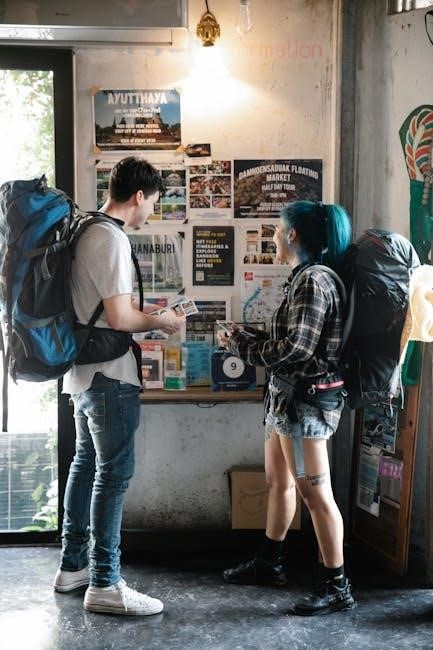
Qualities of an Effective Filipino Tour Guide
Filipino tour guides are known for their deep knowledge‚ excellent communication skills‚ and passion for sharing culture. They ensure memorable experiences through their expertise and genuine hospitality.
2.1 Communication Skills
Effective Filipino tour guides excel in clear and engaging communication. They articulate historical facts‚ cultural nuances‚ and local stories with enthusiasm and precision. Fluency in multiple languages‚ including English‚ enhances their ability to connect with diverse visitors. Their storytelling skills captivate audiences‚ making tours informative and memorable. Strong communication fosters a positive experience‚ ensuring travelers feel understood and valued. This skill is crucial in handling diverse groups and addressing queries‚ making Filipino tour guides exceptional ambassadors of their country’s heritage.
2.2 Local Knowledge
Filipino tour guides possess in-depth knowledge of local culture‚ history‚ and geography‚ enabling them to provide authentic and enriching experiences. Their familiarity with hidden gems‚ historical sites‚ and cultural practices allows them to craft unique tours tailored to visitors’ interests. From explaining the significance of festivals to sharing anecdotes about ancestral traditions‚ their insights create a deeper connection to the destination. This expertise also helps them navigate diverse regions‚ ensuring smooth transitions between urban and natural landscapes‚ and offering visitors a comprehensive understanding of the Philippines’ rich heritage and diverse identity.
2.3 Cultural Sensitivity
Filipino tour guides excel in cultural sensitivity‚ ensuring respectful interactions with local customs and traditions. They understand the importance of preserving heritage and fostering cross-cultural understanding. By sharing insights into local etiquette‚ dress codes‚ and social norms‚ they help tourists navigate cultural differences gracefully. This sensitivity enhances visitors’ experiences‚ allowing them to connect deeply with the Filipino way of life while maintaining respect for its traditions and values. Their role bridges cultures‚ promoting harmony and appreciation for the Philippines’ rich and diverse heritage.
2.4 Problem-Solving Abilities
Filipino tour guides are adept at resolving unexpected challenges‚ ensuring seamless experiences for tourists. From navigating sudden weather changes to handling last-minute itinerary adjustments‚ their quick thinking and resourcefulness are invaluable. They remain calm under pressure‚ addressing concerns like lost items or medical emergencies with professionalism. Their ability to adapt and problem-solve on the spot fosters trust and confidence among travelers. By effectively managing unforeseen situations‚ Filipino tour guides enhance the overall enjoyment and safety of the tour‚ leaving visitors with positive and lasting memories of their journey.
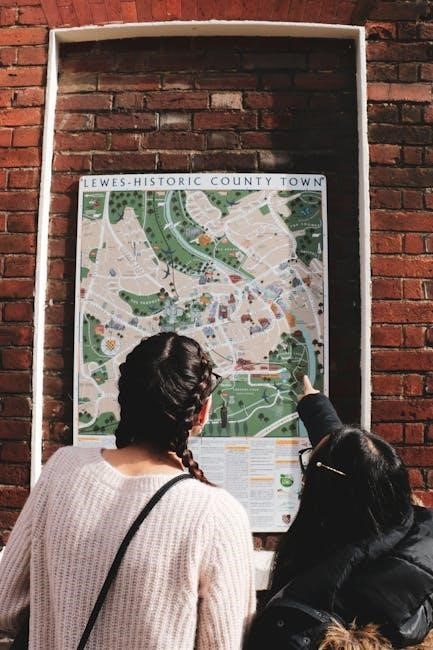
Roles of a Filipino Tour Guide
Filipino tour guides serve as cultural ambassadors‚ historians‚ and storytellers‚ connecting visitors to the Philippines’ rich heritage and natural wonders‚ enriching their travel experiences significantly.
3.1 Cultural Ambassador
A Filipino tour guide acts as a cultural ambassador‚ showcasing the country’s vibrant heritage‚ traditions‚ and values. They connect visitors to local customs‚ fostering mutual understanding and appreciation. By sharing stories‚ history‚ and daily life‚ they bridge cultural gaps‚ making tourists feel welcomed. Their role is to inspire curiosity and respect for the Filipino identity‚ ensuring memorable experiences that highlight the nation’s unique charm and hospitality.
3.2 Local Historian
Filipino tour guides often serve as local historians‚ sharing deep insights into the country’s rich history‚ landmarks‚ and cultural heritage. They provide detailed narratives about historical sites‚ events‚ and figures‚ bringing the past to life for visitors. Whether guiding through ancient ruins‚ colonial cities‚ or wartime memorials‚ they connect tourists to the nation’s storied legacy. Their knowledge enables travelers to appreciate the significance of each location‚ fostering a deeper understanding of the Philippines’ identity and its people. This role is essential in preserving history and ensuring its relevance for future generations.
3.3 Adventure Guide
Filipino tour guides excel as adventure guides‚ leading travelers through the Philippines’ stunning landscapes‚ from lush mountains to pristine beaches. They organize activities like hiking‚ diving‚ and island hopping‚ ensuring thrilling experiences. With deep local knowledge‚ they navigate trails‚ recommend hidden gems‚ and manage risks. Their expertise ensures safety while exploring rugged terrains or marine wonders. By fostering connections with nature and culture‚ they create unforgettable memories for adventurers‚ making them indispensable in showcasing the Philippines’ diverse natural beauty and vibrant outdoor experiences.
3.4 Food and Cuisine Expert
Filipino tour guides often serve as food and cuisine experts‚ introducing visitors to the rich flavors and diverse dishes of the Philippines. They recommend local delicacies like adobo‚ sinigang‚ and lechon‚ while explaining their cultural significance. Guides also lead food tours‚ directing travelers to authentic eateries‚ street food stalls‚ and hidden gems. They ensure guests enjoy safe and memorable dining experiences‚ adapting to dietary preferences and allergies. By sharing stories behind each dish‚ they deepen visitors’ appreciation for Filipino cuisine‚ making it a highlight of any tour and a reflection of the country’s vibrant culture and hospitality.
3.5 Photographer and Storyteller
Filipino tour guides often double as photographers and storytellers‚ capturing memorable moments and sharing tales that bring destinations to life. They use their knowledge of scenic spots to take stunning photos of tourists‚ ensuring lasting memories. Guides also weave narratives about historical sites‚ cultural practices‚ and local legends‚ making tours more engaging and personal. By combining photography and storytelling‚ they create immersive experiences that highlight the Philippines’ beauty and heritage‚ allowing visitors to connect deeply with the places they explore.
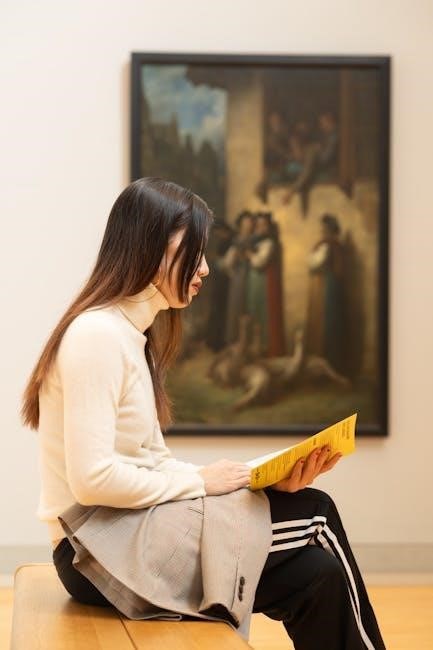
Responsibilities of a Filipino Tour Guide
Filipino tour guides ensure a smooth travel experience by preparing itineraries‚ providing historical insights‚ and handling emergencies. They prioritize safety‚ share local knowledge‚ and enhance visitors’ experiences.
4.1 Pre-Tour Preparations
Filipino tour guides begin by meticulously planning itineraries‚ researching destinations‚ and ensuring all necessary permits and documents are in order. They verify weather conditions‚ transportation‚ and accommodation details to avoid disruptions. Guides also study the group’s preferences‚ special needs‚ and cultural background to tailor the experience. This preparation ensures a smooth‚ enjoyable‚ and informative journey for tourists‚ showcasing the best of the Philippines while addressing potential challenges proactively.
4.2 Leading the Tour
Filipino tour guides excel in creating engaging and memorable experiences for visitors. They begin by welcoming tourists warmly‚ providing essential information‚ and setting clear expectations. Throughout the tour‚ guides share detailed insights about historical sites‚ cultural practices‚ and local attractions‚ ensuring an enriching experience. They adapt their narrative to captivate diverse audiences‚ answering questions and addressing concerns promptly. Guides also manage the group’s pace‚ ensuring adherence to schedules while allowing time for exploration. Their ability to balance professionalism with friendliness makes them indispensable in delivering a seamless and enjoyable journey for travelers exploring the Philippines.
4.3 Ensuring Safety and Security
Filipino tour guides prioritize the safety and security of their groups‚ ensuring a worry-free experience; They conduct thorough risk assessments‚ plan safe routes‚ and stay informed about local conditions. Guides are trained in first aid and emergency response‚ handling situations calmly and effectively. They brief tourists on safety protocols and monitor environments to prevent accidents. By maintaining awareness of potential hazards and managing group behavior‚ Filipino tour guides create a secure atmosphere‚ allowing visitors to fully enjoy their journey without concerns. Their vigilance and preparedness are key to a safe and memorable travel experience in the Philippines.
4.4 Handling Emergencies
Filipino tour guides are trained to handle emergencies efficiently‚ ensuring the safety of tourists. They remain calm under pressure‚ assess situations quickly‚ and implement contingency plans. Guides are equipped with first aid skills and knowledge of emergency protocols. They communicate clearly with the group‚ providing reassurance and instructions. In cases of natural disasters or unexpected events‚ they coordinate with local authorities to secure assistance. Their ability to think critically and act swiftly helps mitigate risks‚ ensuring tourists’ well-being and allowing them to continue their journey safely. Effective emergency handling is a cornerstone of their professional commitment to providing a secure and enjoyable experience.

Certifications and Training
Filipino tour guides undergo rigorous training and certification programs accredited by the Department of Tourism‚ enhancing their expertise in local history‚ safety‚ and customer service delivery.
5.1 Accreditation Process
The accreditation process for Filipino tour guides involves meeting the Department of Tourism’s standards‚ including completing training programs and passing exams. This ensures guides are qualified to provide safe‚ accurate‚ and engaging tours. The process also includes background checks and evaluating their knowledge of local culture‚ history‚ and environmental conservation. Accredited guides receive official certification‚ enhancing their professionalism and credibility in the tourism industry. Regular renewal ensures they stay updated on the latest trends and regulations‚ maintaining high service quality for both local and international visitors.
5.2 Training Programs
Filipino tour guide training programs focus on enhancing knowledge and skills to deliver exceptional tourism experiences. These programs cover local history‚ cultural awareness‚ environmental conservation‚ and customer service. Guides learn effective communication techniques‚ problem-solving‚ and safety protocols. Practical training includes mock tours and emergency scenario simulations. The goal is to equip guides with comprehensive understanding of destinations and the ability to engage diverse audiences. These programs are often conducted by the Department of Tourism and accredited institutions‚ ensuring guides meet industry standards and provide memorable experiences for visitors while promoting the Philippines’ heritage and natural wonders.
5.4 Continuous Professional Development
Continuous professional development is essential for Filipino tour guides to stay updated on industry trends and enhance their skills. This involves attending workshops‚ seminars‚ and digital courses to deepen knowledge of history‚ culture‚ and environmental conservation. Guides also learn about new destinations and attractions‚ ensuring they provide accurate and engaging information. Networking with other professionals and sharing best practices further enriches their expertise. By committing to lifelong learning‚ Filipino tour guides maintain high service standards and adapt to evolving visitor expectations‚ ensuring memorable and enriching experiences for tourists while promoting the Philippines’ rich heritage and natural beauty effectively.
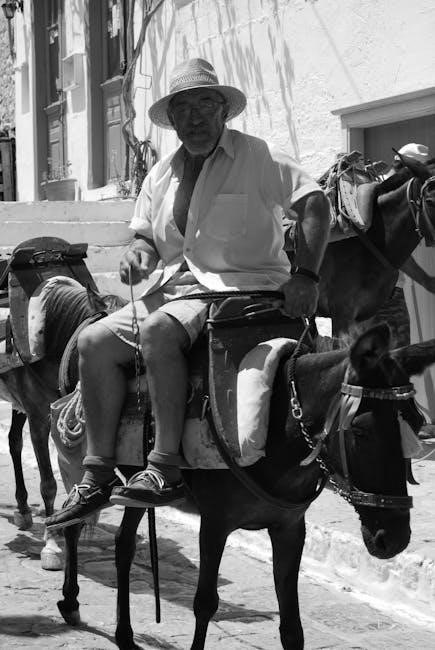
Challenges Faced by Filipino Tour Guides
Filipino tour guides face challenges like seasonal demand‚ competition from digital guides‚ and economic factors affecting tourism. These issues require adaptability and resilience to maintain their livelihood.
6.1 Seasonal Demand
The tourism industry in the Philippines is highly seasonal‚ with peak periods during holidays and summer. This fluctuation directly impacts Filipino tour guides‚ who experience inconsistent income and job security. Many guides face reduced work opportunities during off-peak seasons‚ making it challenging to sustain their livelihood. Additionally‚ competition intensifies during peak times‚ as more guides vie for limited spots. This seasonal demand creates financial instability‚ prompting some guides to seek alternative income sources or develop supplementary skills to remain employed year-round. The unpredictable nature of tourism demand adds stress and uncertainty to their professional lives.
6.2 Competition from Digital Guides
The rise of digital guides and travel apps has introduced significant competition for Filipino tour guides. Many travelers now rely on smartphones for real-time information‚ maps‚ and translations‚ reducing the need for human guides. Websites and apps offer detailed itineraries‚ historical facts‚ and language support‚ making self-guided tours more accessible. Additionally‚ digital platforms often include interactive features like augmented reality and audio narratives‚ enhancing the user experience. This shift challenges traditional tour guides to adapt‚ emphasizing the need to offer unique‚ personalized‚ and culturally rich experiences that technology cannot replicate. The competition underscores the importance of innovation and added value in their services.
6.3 Economic Factors
Economic factors significantly influence the livelihood of Filipino tour guides. Fluctuations in global and local economies can impact tourism demand‚ with downturns leading to reduced travel. Currency exchange rates affect international visitors’ spending power. Government policies and infrastructure development also play roles‚ as improvements in transportation and accommodations can attract more tourists. Additionally‚ the cost of living and operational expenses for guides themselves are economic challenges. A thriving economy can boost tourism‚ benefiting guides‚ while economic instability creates uncertainties. These factors highlight the need for guides to adapt to financial trends and diversify their services to remain competitive and sustainable in the industry.

Popular Destinations Guided by Filipinos
Filipino tour guides showcase iconic destinations like Boracay’s beaches‚ Bohol’s Chocolate Hills‚ and Manila’s Intramuros. These spots highlight the Philippines’ rich culture‚ history‚ and natural beauty.
7.1 Beaches and Islands
The Philippines is renowned for its stunning beaches and islands‚ with destinations like Boracay‚ Palawan‚ and Siargao attracting global visitors. Filipino tour guides excel in showcasing these tropical gems‚ offering insights into their unique charm. From the crystal-clear waters of El Nido to the vibrant nightlife of Cebu‚ guides ensure unforgettable experiences. They often highlight hidden coves‚ pristine lagoons‚ and coral reefs‚ perfect for snorkeling and diving. Island-hopping tours‚ beachside dining‚ and local festivals are popular activities. Guides also share stories about marine life and conservation efforts‚ making these destinations a must-visit for travelers seeking paradise and cultural richness.
7.2 Historical Landmarks
Filipino tour guides are instrumental in preserving and sharing the country’s rich history through its iconic landmarks. Sites like Intramuros‚ a historic walled city in Manila‚ and the Barasoain Church‚ known as the birthplace of the First Philippine Republic‚ are highlights. Guides provide detailed insights into the significance of these locations‚ weaving stories of colonial pasts‚ revolutions‚ and cultural evolution. Their expertise helps visitors connect with the nation’s heritage‚ making history come alive. These landmarks not only attract history enthusiasts but also serve as a bridge to understanding the Philippines’ identity and resilience. Guides ensure a meaningful and educational experience for all travelers.
7.3 Nature and Wildlife
The Philippines is a biodiversity hotspot‚ offering lush forests‚ vibrant coral reefs‚ and unique wildlife. Filipino tour guides excel in showcasing these natural wonders‚ such as the Chocolate Hills of Bohol and the Tubbataha Reefs Natural Park. They lead hikes through Mount Pulag’s stunning landscapes and organize bird-watching tours in key habitats. Guides also share insights into conservation efforts and the importance of protecting endemic species. Their expertise enhances the exploration of these natural treasures‚ ensuring an immersive and educational experience for visitors while promoting environmental awareness and sustainable tourism practices in the Philippines.
7;4 Urban Areas
Filipino tour guides excel in navigating the vibrant urban landscapes of cities like Manila‚ Cebu‚ and Davao. They highlight historical sites such as Intramuros and modern attractions like Bonifacio Global City‚ blending history with contemporary culture. Guides often lead walking tours‚ sharing stories behind landmarks and hidden gems. They also introduce visitors to local markets‚ street food‚ and urban art scenes‚ offering a glimpse into the daily life and traditions of city dwellers. Their expertise ensures a seamless and engaging exploration of the Philippines’ dynamic urban centers‚ showcasing the unique blend of heritage and modernity.
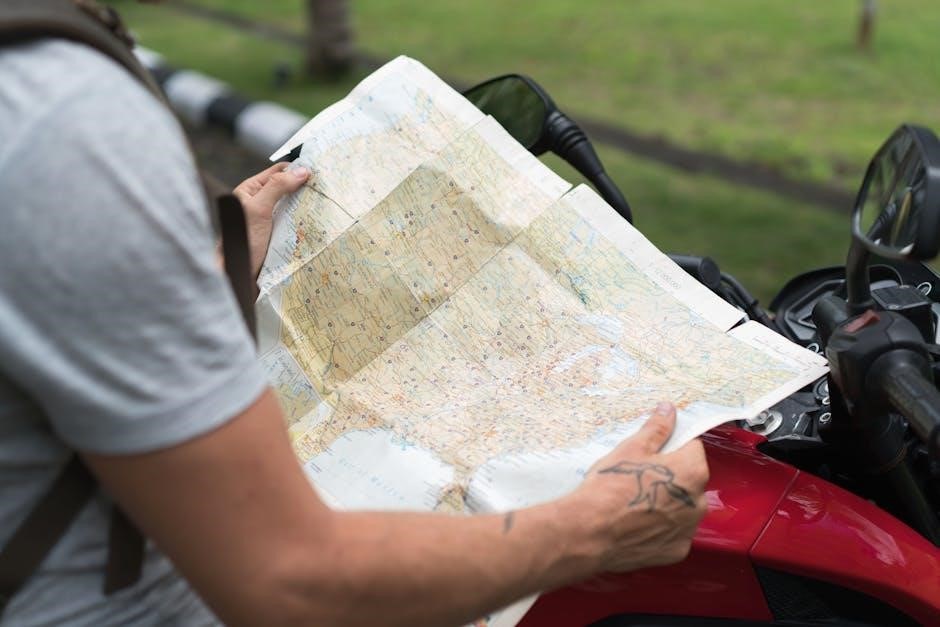
How to Become a Filipino Tour Guide
Becoming a Filipino tour guide involves gaining relevant education‚ obtaining certifications‚ and developing strong communication skills. Experience and networking are crucial for building a successful career in this field.
8.1 Education and Background
A Filipino tour guide typically holds a degree in hospitality‚ tourism‚ or a related field‚ though formal education may vary. Many begin with a passion for history‚ culture‚ and storytelling. Knowledge of local languages and dialects is essential‚ while fluency in English is a must for international tourists. Guides often gain experience through internships or by assisting seasoned professionals. Backgrounds in history‚ anthropology‚ or environmental science can enhance their expertise. Some may also pursue certifications in first aid or eco-tourism‚ further enriching their qualifications and making them versatile professionals in the industry.
8.2 Gaining Experience
Gaining experience is crucial for aspiring Filipino tour guides. Many start by assisting seasoned guides or leading small groups to build confidence and skills. Internships with travel agencies or local tourism boards provide hands-on learning opportunities. Engaging with tourists helps refine communication and cultural storytelling abilities. Feedback from travelers and fellow guides is invaluable for improvement. Over time‚ guides develop expertise in handling logistics‚ solving problems‚ and creating memorable experiences. Practical exposure to diverse tourist preferences and scenarios shapes their adaptability and professionalism‚ ensuring they deliver exceptional service and authentic cultural insights.
8.3 Networking and Opportunities
Networking is essential for Filipino tour guides to uncover new opportunities. Building relationships with travel agencies‚ local businesses‚ and fellow guides expands professional connections. Joining tourism associations and attending industry events fosters growth and collaboration. Engaging with online platforms and social media helps reach a broader audience. Collaborating with bloggers or influencers can also enhance visibility. By leveraging these networks‚ guides can access exclusive tours‚ gain referrals‚ and stay updated on industry trends. Continuous networking not only boosts career prospects but also contributes to the overall development of the tourism sector in the Philippines.

The Future of Filipino Tour Guides
Filipino tour guides will embrace technology‚ sustainability‚ and cultural preservation. They will cater to global audiences‚ offering unique experiences that blend tradition with modern tourism trends and innovations.
9.1 Technology Integration
Technology is transforming the role of Filipino tour guides‚ enabling them to enhance guest experiences through virtual tours‚ augmented reality‚ and real-time translations. Digital tools like apps for itinerary management and interactive maps are becoming essential. Guides can now provide immersive experiences by integrating historical data and cultural insights seamlessly. Social media and online platforms also allow guides to promote destinations globally‚ attracting diverse audiences. By embracing technology‚ Filipino tour guides can offer personalized and engaging tours‚ ensuring they remain competitive in a rapidly evolving industry while preserving the country’s rich cultural heritage for future generations.
9.2 Sustainability Practices
Filipino tour guides are increasingly adopting sustainable practices to preserve the country’s natural and cultural treasures. Eco-friendly tours emphasize minimal environmental impact‚ such as reducing plastic use and promoting responsible wildlife interactions. Guides encourage visitors to respect local customs and fragile ecosystems‚ fostering a deeper appreciation for the Philippines’ biodiversity. By collaborating with local communities and environmental organizations‚ they contribute to conservation efforts and support eco-tourism initiatives. These practices not only protect the environment but also ensure that future generations can enjoy the beauty and richness of the Philippines‚ making sustainability a core value in the tourism industry.

9.3 Global Opportunities
Filipino tour guides are gaining recognition on the global stage as the demand for unique cultural experiences grows. With the Philippines’ rich heritage and natural beauty attracting international visitors‚ guides are leveraging digital platforms to connect with global travelers. Collaborations with international tour agencies and travel influencers expand their reach‚ showcasing Filipino culture worldwide. This global exposure not only enhances the country’s tourism reputation but also opens doors for Filipino guides to work abroad or lead international tours‚ fostering cultural exchange and career growth in the global tourism industry.

